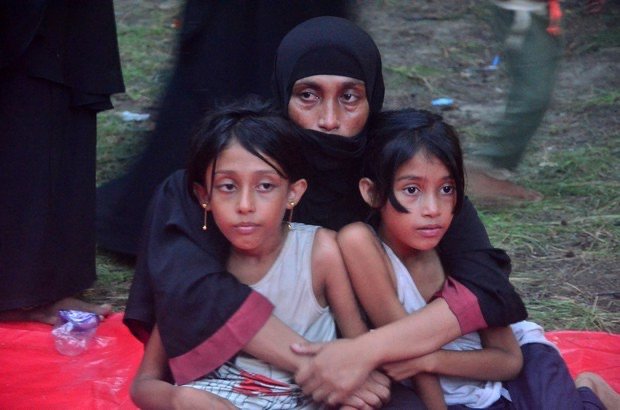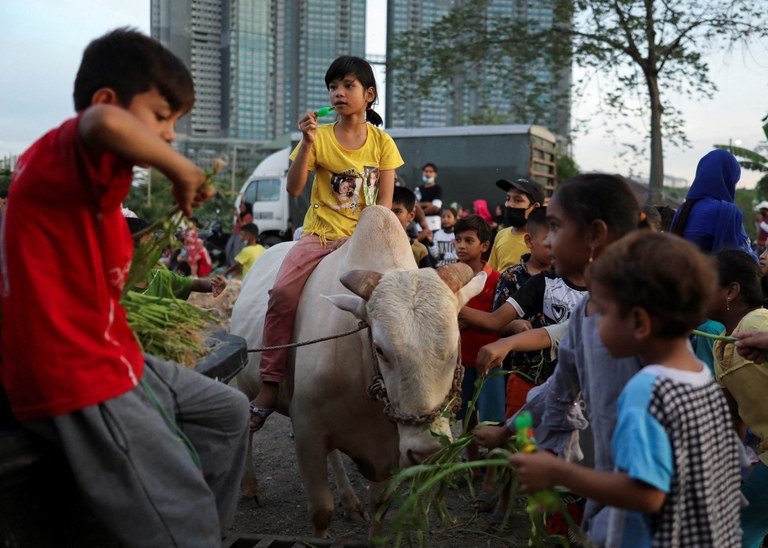Many of the refugees who escaped are likely trying to head to Malaysia, observers say

Hundreds of Rohingya refugees have escaped from temporary shelters in Indonesia’s Aceh province, likely aided by human smugglers they paid to ferry them to Malaysia, for better opportunities and family reunions, officials and observers said.
Around 2,000 Rohingya who had landed in Aceh and North Sumatra since November – in 14 separate arrivals –were given refuge in temporary shelters in the two provinces. Now, around 1,000 remain in Aceh and some 170 in the province next-door, a United Nations official said.
The most recent escape involved 27 refugees fleeing a camp at the West Aceh regent’s office complex in Meulaboh on Saturday, said Azim N.G., head of the local Public Order Agency.
Azim said the refugees escaped during heavy rain before dawn while the guards slept.
“The immigrants were discovered missing when officers went to check the camp, and it was found empty,” he said. “Currently, there are no Rohingya refugees left in West Aceh. All have fled.”
Local authorities suspect the refugees were taken to North Sumatra, but their whereabouts remain unknown. This incident followed several smaller escapes and interceptions of drivers attempting to transport refugees to Malaysia for a fee.
While not a signatory to the U.N. Refugee Convention, Indonesia has traditionally been a supporter of this persecuted Myanmar Muslim minority group and provided temporary shelter to Rohingya refugees.
Most of the Rohingya who arrive in Indonesia have left crowded and violent refugee camps in Myanmar’s neighbor, Bangladesh. Around 740,000 of them have been sheltering in the Cox’s Bazar camps in southwestern Bangladesh since they fled a brutal crackdown by the Burmese military in 2017.
The refugees have usually left Bangladesh seeking a better life in Muslim-majority countries in Southeast Asia.
However, many become disillusioned with the lack of opportunities in Indonesia and seek to reach Malaysia, which has a larger Rohingya community and more informal employment opportunities, observers say.
Muhammad Riza Nurdin, a senior researcher at the International Centre for Aceh and Indian Ocean Studies, said the refugees were using human smugglers due to the lack of legal pathways to reach Malaysia.
“Many Rohingya refugees aim to reunite with family members already in Malaysia,” Nurdin said. “They believe they have a better chance of finding work and acceptance there, even if it’s illegal.”

The U.N. refugee agency, UNHCR, acknowledged the refugees’ desperation but warned of the dangers of human smuggling, particularly for women and children who make up the majority of the Rohingya refugees.
“Rohingya refugees may have been separated from their families for years, so they have a strong desire to reunite. This often motivates them to continue their journey even though they are aware of the dangers,” said Mitra Salima Suryono, a spokesperson for the UNHCR Indonesia.
She added that 75% of Rohingya refugees are women and children, making them particularly vulnerable to smuggling and human trafficking.
Sirajul Mustafa, an 18-year-old Rohingya refugee, recently expressed his frustration with the lack of opportunities and activities at the shelter in Aceh, where he has been residing. Aceh, at the westernmost tip of Sumatra island, is a semi-autonomous and religiously conservative province
“I want to work. I want to be able to send money to my parents in Cox’s Bazar, Bangladesh, who have already paid an agent 100,000 Bangladeshi taka (about U.S. $950) to help me escape,” he told BenarNews.
Since December, tensions have flared in Aceh as local residents express growing hostility toward Rohingya refugees, citing limited resources and concerns about the influx. In March, a crowd stormed a shelterin Suak Nie village, forcing authorities to relocate 75 Rohingya who had recently arrived after their boat capsized.
UNHCR and human rights groups have expressed concern over the spread of misinformation and fake news that has fueled local resentment towards the Rohingya, further complicating their already precarious situation.
Hendra Saputra, of the Jesuit Refugee Service Indonesia in Aceh, said that while the smugglers are criminals, the refugees are victims with limited options.
“They are leaving shelters to seek a place where they can live with dignity and have a future,” Hendra said.
“The lack of safe and legal pathways for Rohingya refugees forces them to resort to dangerous measures.”


